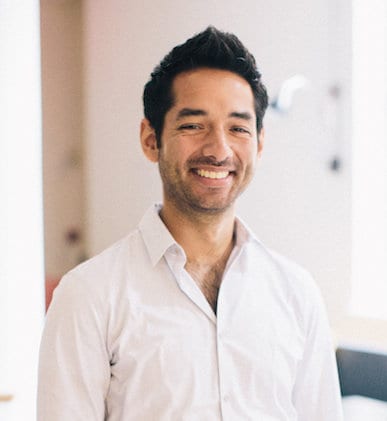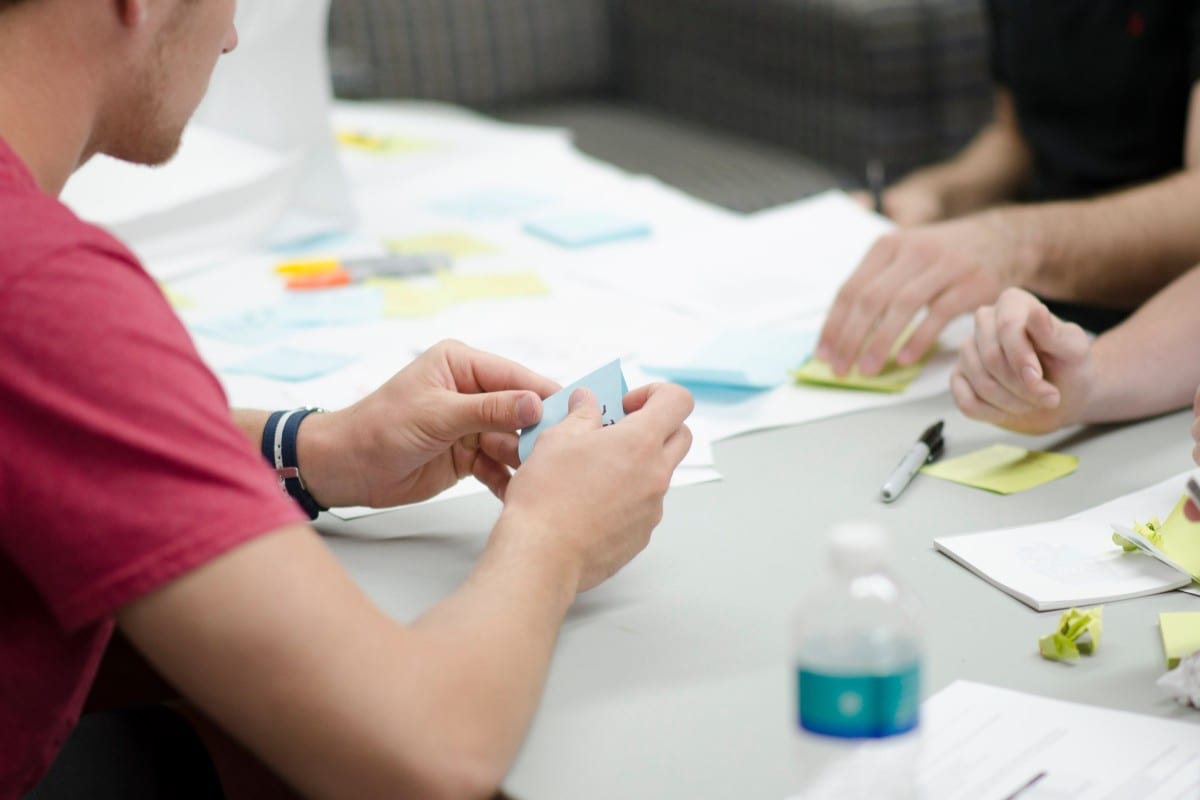This article was written by guest author Roger Osorio
Have you ever learned about a successful product, only to complain that you had that idea several years earlier? Have you ever looked back after several months only to wonder where the time has gone and why you didn’t make progress on some idea or goal?
There are many reasons this happens to us, but there’s one that we can do something about – lack of process for taking any idea from concept to creation. Like any other skill or process, practice is all that separates you from anyone that already does it. One of the key differentiators between people who are successful and those who are not is having an effective process for prototyping, testing, learning from failure, and making adjustments.
This begs the question, where does one go to learn and/or practice this critical process? Ultimately, you can practice this on your own, however, it’s more fun to learn when surrounded by others looking to learn and practice.
One such place is Startup Weekend. For the past 2 years, I have facilitated events for this global organization. Startup Weekend is a 3-day event where participants (75-125 people) come together, pitch ideas, form teams around the top-voted ideas and then spend the remainder of the event taking their ideas from concept to creation. Sunday evening, each team pitches their developed ideas to a panel of judges that include venture capitalists, angel investors, CEO’s, founders, and other very experienced leaders. For some this event is an opportunity to kick off a new business that will eventually launch. For most, this is an opportunity to learn and practice a process for going from concept to creation that applies to professionals, educators, students, leaders, parents, friends, and entrepreneurs. That process is the following:
- Identify and state the problem clearly and concisely
- Validate the problem
- Design a prototype (idea) that specifically addresses the problem you stated
- Validate the prototype (idea)
- Make at least one adjustment to your prototype that reflects the feedback
- Draft a model that would make this idea profitable and/or sustainable
- Repeat steps 4 and 5
After people have experienced an event like this, they often describe it as transformational and life changing. I’ve had many people cite that it was a tipping point moment for them. There are many reasons for this. The following are 5 ways that an event like Startup Weekend is so successful at effectively teaching you a process. Each way listed is an element of the event that makes learning this process more effective and efficient.

5 Effective Learning Environment Elements to apply from Startup Weekend & Entrepreneur Programs
1. Intense Hyper-Focus
Startup Weekend is an opportunity for people to focus on a single idea for an entire weekend. For 48+ hours teammates will place most of their attention on a single objective – to run their idea through the process we teach. Why is focus so important? According to Mihaly Csikszentmihalyi, people are at their happiest when they achieve a state of intense focus on a single activity. When people are fully engaged and engrossed in a single activity, they often don’t realize they are thirsty, hungry, tired, or have to go to the restroom. In this state, you may not even notice your surroundings. Mihaly labeled this experienced the “state of flow.” Startup Weekend, because of its limited physical boundaries (you must work at the event venue), narrowly-defined objectives, and strict time limit (all teams must be ready to deliver final presentations by 5pm on Sunday), the event creates the optimal conditions for achieving states of flow. Before you know it, the event is over. Time flies when you’re having fun!
2. Safe Place to Fail
Any time people or teams engage in a learning opportunity, failure will be a critical component of any future success. However, failing is not easy. This is why a safe place for failing and learning from that failure promotes faster learning. As a math educator, I make it a priority to create a classroom where it is safe and preferred to fail. Startup Weekend is such a space where failure is necessary, preferred, and embraced. As a facilitator, I always set failure as one of the key expectations for the weekend. When people feel safe to fail, they are more willing to try new things and learn more effectively. Learning any new process is difficult; creating a safe space makes learning and practice more effective.
3. People You Don’t Know
Sometimes we need to step out of our normal environment and surround ourselves with others. When we stay in our normal environment, we often feel a pressure to live up to the image of ourselves we have created. If we are quiet people, we stay quiet; if we are class clowns, we make jokes; if we are extroverted, we talk to people all the time. You get the idea. At Startup Weekend it is very likely you don’t know the majority of people you are participating with. This is a great opportunity to step out of your comfort zone because know one knows you or your comfort zone. No one knows if you are usually quiet, so take advantage and practice speaking up. This refreshing environment is important every now and then in order to learn more effectively and thus this helps Startup Weekend teach people a process they may have very little practice with or none at all.
4. Motivated Participants
Participants who attend Startup Weekend have already taken a serious step toward growing themselves – they showed up. Committing and showing up to a 3-day long event is no small step; that alone takes a lot of courage. Staying the entire weekend takes even more courage and motivation. There is no doubt that the people who commit, attend, and stay are motivated. Learning is more fun, inspiring, and effective when surrounded by motivated individuals who push each other and spew energy all weekend long. Engagement and energy are key drivers of effective learning and events like Startup Weekend are designed in such a way to make that the default.
5. Practice, Practice, Practice!
We have all heard it before, if you want to learn or become better at something, you must practice. The same goes for problem-solving skills. Events like Startup Weekend make practice the centerpiece of the event. The thought is, less talking, more doing. We learn best by doing and Startup Weekend has designed their event almost entirely in this manner. When participants begin their work, what I often notice is that with very little guidance they are able to find their way through the process as a team. Everyone brings something to the team and by being in a position to have to learn by doing, it forces each team member to contribute very quickly. Working together and by asking questions, they are able to learn the process while they are fully engaged in executing it. What I have learned is that people are often not far from knowing something or figuring it out and when they get right to work the gaps begin to emerge quickly. People fill the gaps they can with their individual contributions and the gaps that remain I help them address.
All learning can be this way if we thoughtfully consider the design of our programs and lessons. Startup Weekend leverages these ingredients in order to help entrepreneurs, aspiring entrepreneurs, and other professionals learn a powerful process for making ideas executable. However, these ingredients can be applied to a recipe for teaching math, coding, English, dancing, fill-in-the-blank.
Include some of these ingredients the next time you create, design, or host a learning experience of any type.
About the Author:
 As a leader, coach, speaker, and educator, Roger Osorio cares deeply and is passionate about unlocking potential in and empowering people, teams, and organizations. By day, Roger is a program leader at IBM where he guides and empowers people and teams to be leaner in how they take any idea or effort from concept to creation. By night, Roger organizes and facilitates Startup Weekend events – a weekend long event where people learn to take business ideas from concept to creation – all around the world. When he is not doing either, Roger coaches math students to help them overcome their challenges in learning the topic. Roger Osorio has B.S. degrees in Finance and International business, an M.S. in Psychology, and an M.B.A.
As a leader, coach, speaker, and educator, Roger Osorio cares deeply and is passionate about unlocking potential in and empowering people, teams, and organizations. By day, Roger is a program leader at IBM where he guides and empowers people and teams to be leaner in how they take any idea or effort from concept to creation. By night, Roger organizes and facilitates Startup Weekend events – a weekend long event where people learn to take business ideas from concept to creation – all around the world. When he is not doing either, Roger coaches math students to help them overcome their challenges in learning the topic. Roger Osorio has B.S. degrees in Finance and International business, an M.S. in Psychology, and an M.B.A.
